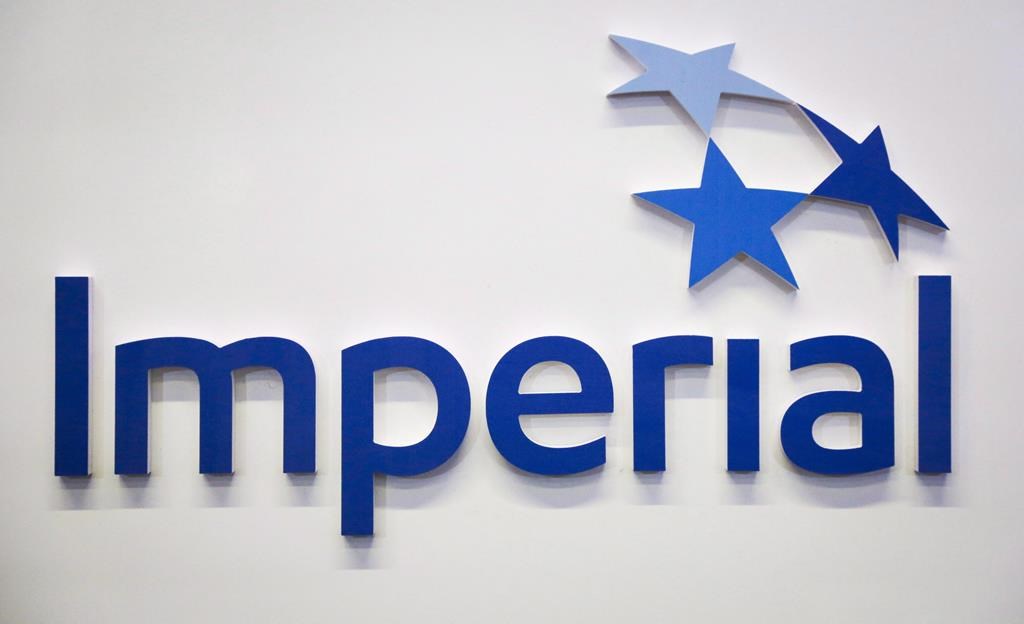Shares in Imperial Oil Ltd. rose on Friday after raising its dividend by nearly 23 per cent after reporting that first-quarter oil and gas production beat analyst expectations.

The Calgary-based oilsands producer and refiner also announced accelerated share buybacks as it continues to prioritize returns to shareholders over spending on big growth projects.
“We have paid a dividend reliably for over 100 consecutive years now and grown it in each of the last 26 years,” CEO Brad Corson told a morning conference call with investors.
“Today’s announcements just continue to underscore not just our strong financial position and our confidence in the future but also clearly demonstrates our ongoing commitment to returning cash to our shareholders.”
Imperial said it will now pay a quarterly dividend of 27 cents per share, up from 22 cents. It also announced a plan to spend as much as $1 billion over the next two months to buy back up to four per cent of its outstanding shares, increasing the program from 50,000 shares to about 29 million.
CIBC analyst Dennis Fong called the buyback revision a “positive surprise,” adding past experience suggests Imperial will complete the purchases and likely renew the program in July at a similar or higher rate.
In Toronto, Imperial shares rose by as much as 4.8 per cent or $1.63 to a new 52-week high of $35.51 per share.
Imperial reported net income of $392 million or 53 cents per share on revenue of nearly $7 billion in the first quarter compared with a net loss of $188 million or 25 cents on $6.69 billion in the first quarter of 2020.

Get weekly money news
The termination of shipping agreements related to the cancelled Keystone XL export pipeline resulted in a liability of $62 million as of March 31 and an after-tax charge of $47 million on first-quarter earnings, reported Dan Lyons, senior vice-president of finance, on the call.
He added there was a corresponding decrease in Imperial’s long-term purchase commitments by $2.9 billion.
In the fourth quarter of 2020, Imperial lost $1.15 billion, mainly due to a $1.17-billion non-cash charge related to Canadian unconventional natural gas assets it doesn’t think it will ever develop.

Strong output from Imperial’s oilsands projects in northern Alberta boosted oil and gas production to 432,000 barrels of oil equivalent per day in the three months ended March 31, up from 419,000 barrels per day in the same period of 2020 but behind 460,000 boe/d in the fourth quarter of 2020.
Imperial noted production of 251,000 barrels per day at the Kearl oilsands mine (178,000 barrels per day net to Imperial), 140,000 barrels per day from its Cold Lake thermal oilsands operations and 79,000 bpd from its 25 per cent share in the Syncrude mining operations.
The number of people on-site at Syncrude during a maintenance turnaround is being reduced due to a COVID-19 emergency declared by the Regional Municipality of Wood Buffalo, Corson said, but the work is still expected to be completed on time.
Refinery throughput averaged 364,000 barrels per day, compared with 383,000 a year earlier, as Corson reported that gasoline sales are now at about 80 per cent of pre-pandemic levels, up slightly from January, but jet fuel sales are still stuck at about 35 to 40 per cent.
Asked about Ottawa’s announcement of proposed carbon capture, use and storage supports in the recent federal budget, Corson said he thinks CCUS will be needed to get to net-zero emissions and the company is waiting to see more details to assess how it affects its plans.
Exxon Mobil Corp., which owns 69.6 per cent of Imperial, announced in February it would create a new company called ExxonMobil Low Carbon Solutions to commercialize technologies including CCUS. Corson said Imperial will have access to that expertise.






Comments